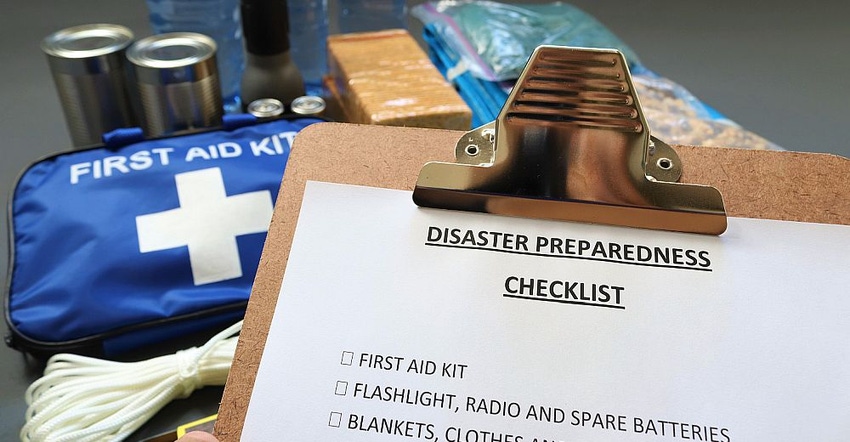Self-storage facilities aren’t immune to natural disasters. If one occurs at your property, you must prevent injury and damage as much as you can and be prepared to manage any aftermath. Read actions you should take to mitigate risk.

Reprinted with permission from the author, this article originally appeared in the “Self Storage Legal Monthly Minute” newsletter.
This summer, as forest fires raged in California and hurricanes lined up in the Gulf of Mexico, we recognized all too well that self-storage sites aren’t immune to natural disasters. No matter how cautious a facility operator you are, there’s always the chance a catastrophe will cause damage to your property and tenants’ stored goods. These incidents can have a significant financial and emotional impact.
Let’s look at how you can prepare for natural disasters before they occur and how to manage the aftermath, particularly if tenant property has been lost or damaged.
Have a Plan
After a disaster, it’s incumbent upon you as the self-storage operator to protect the site, including tenants’ belongings, from further damage. Cover or board up areas that remain exposed to the elements and rope or fence off access to any area that may be dangerous. Hire temporary security if necessary. Fill out incident reports and take photographs or video footage to document the loss and your effort to mitigate any negative impact.
Next, notify tenants. Issue notices by phone, text, email and even snail mail. This communication should explain the status of the facility damage and whether the tenant can access the property to inspect and recover their items. Access can usually be granted unless the damage is such that it would be dangerous for people to enter. The written notice should also recommend that the tenant notify their insurance company.
Once you’ve alerted tenants, contact your own insurance company. Your provider may not be obligated to cover your claim if it isn’t given reasonable notice of the incident and a chance to investigate. Contact your agent by phone and follow up in writing. This is also the time to contact any companies that provide tenant-insurance programs or tenant-protection plans offered at at your facility.
Safety and Tenant Obligations
Previous disasters and their resulting legal cases have taught us that self-storage operators have the right to deny facility access to tenants if it isn’t safe to do so. It’s better to risk the loss of property stored than the life and physical well-being of people who may want (or even demand) entry. Don’t permit access until the premises have been declared suitable.
The courts have upheld the rights of landlords, including self-storage owners, to deny access even at the cost of ongoing damage to stored property. If there’s a safety concern, they’ve declared you shouldn’t be considered a bailee or found negligent, even if it restricts customers’ access to their own goods.
Once access is permitted, tenants are responsible for reclaiming their property or abandoning the contents as unsalvageable. Let them know the deadline for meeting this obligation. If they don’t claim their property, you may need to move or disposed of it based on its condition and estimated residual value. In the end, it’s the tenant who’s responsible for handling their stored goods. If they choose to ignore their duty, they risk losing their items once you begin the process of rehabilitation and reconstruction.
Handling Tenant Claims
Most self-storage rental agreements will protect your business from tenant claims that arise from loss of property. Your lease should contain language specifying that the business won’t be held responsible for loss or damage to stored goods. It should also state that property is to be stored at the tenant’s own risk and the business takes neither care, custody nor control of items stored. Still, since some states won’t enforce such exculpatory clauses, it’s important to require that tenants to obtain their own insurance as part of their lease agreement, too.
Unfortunately, when a renter’s property is lost or damaged—regardless of the cause and even if the proper lease protections are in place—they’ll sometimes sue the facility. This is why it’s important to have customer goods legal liability insurance. This specialized coverage will cover the cost to defend a self-storage operator against lawsuits that arise from claims of damage or loss. If necessary, it’ll also cover any court costs and payments to the tenant. Be aware that your standard comprehensive and business-liability policies likely won’t likely cover this type of loss. You must buy the specialized coverage, which is specific to self-storage.
Risk Mitigation
Natural disasters can wreak havoc for self-storage properties, no matter how well you plan or how good-intentioned your efforts. By taking a straightforward approach to safety, you should be able to avoid the worst problems associated with injury and property damage. Once the dust settles and safe access has been verified, you can begin the process of repair and recovery. As long as the proper insurance is in place, the financial impact can hopefully be mitigated.
Scott I. Zucker is a founding partner in the Atlanta law firm of Weissmann Zucker Euster Morochnik & Garber P.C. Practicing law since 1987, he represents self-storage owners and managers on legal matters including property development, facility construction, lease preparation, employment policies and tenant-claims defense. Scott is a presenter at industry conferences and the author of “Legal Topics in Self Storage: A Sourcebook for Owners and Managers.” He’s also a partner in the Self Storage Legal Network, a subscription-based legal services for self-storage operators. To reach him, call 404.364.4626, or email [email protected].
About the Author(s)
You May Also Like





